Editor:
Brandon Sweet
University Communications
bulletin@uwaterloo.ca
Creating opportunities for students
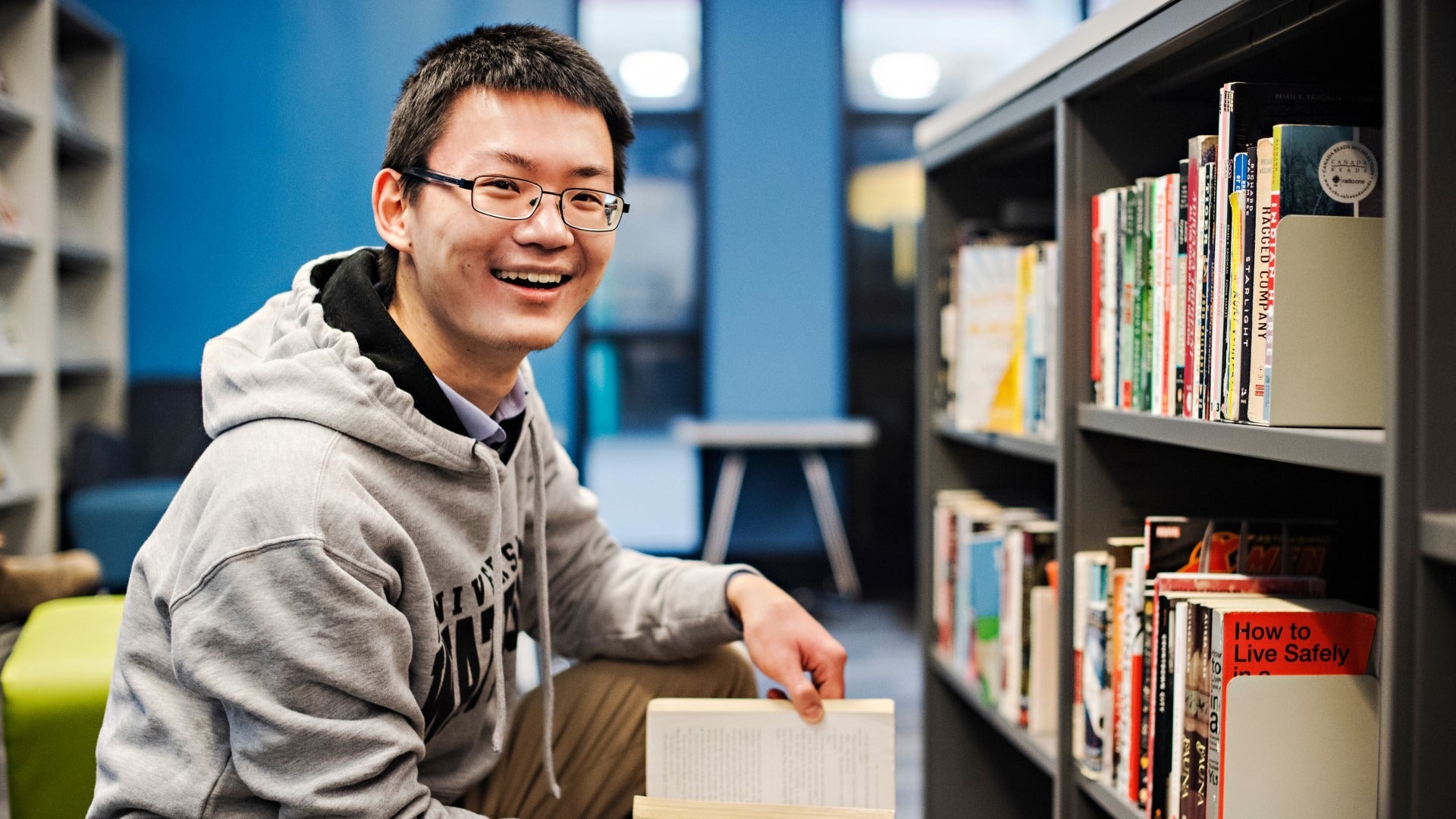
This article was originally published on Waterloo News.
More people will have access to education at Waterloo through a $2 million gift from The Joyce Family Foundation.
The Joyce Scholars Awards provide funding for learners in challenging financial or socio-economic circumstances. Open to students entering any program at the University of Waterloo, the awards can be renewed for up to four years.
Waterloo alumni help to create awards – and opportunities that change lives
Two Waterloo alumni with The Joyce Family Foundation, executive director Maureen O’Neill (MES ’00) and trustee Rob MacIsaac (BA ’84), say their time at Waterloo helped them start their successful careers.
“It was the perfect preparation for the rest of my life,” says Rob, who graduated from the program now known as Arts and Business. “My grounding in a variety of disciplines, and my co-op experience, gave me an excellent foundation for the jobs I would take on and the education I would later pursue.”
Maureen earned her master’s in Environmental Studies, after moving from Vancouver to pursue her degree. “The program I took was second to none,” says Maureen.
“I was so pleased that the Board chose Waterloo to create these student awards. It’s a world-class university, and everyone who has the potential to benefit from a Waterloo education should be able to do so.”
Vivek Goel, president and vice-chancellor of Waterloo, says the awards will help talented learners reach their full potential.
“I am truly grateful for this investment,” he says. “The Joyce Scholars Awards will enable students from all backgrounds to pursue their passions and grow as citizens and leaders. I look forward to witnessing their accomplishments as they work with our University community to create more sustainable, prosperous futures for all.”
Awards honour the memory of a trailblazer in Canadian business
The Joyce Family Foundation’s commitment to students builds on the legacy of Ron Joyce, the renowned Canadian entrepreneur who invested in the first Tim Hortons donut shop and grew it into one of the nation’s most iconic companies. Creator of the Tim Hortons Children’s Foundation, the philanthropist and business leader established The Joyce Family Foundation in 1995 and remained actively involved until his passing in 2019.
“Ron never had the opportunity to pursue a higher education, but he recognized that it could be a game-changer,” says Maureen. “He really believed in hard work, determination and having a vision.”
Rob adds, “He was a great Canadian and an extraordinary man. He had a big heart for young people who were struggling to overcome difficulties.”
Maureen says the awards at Waterloo align with Ron Joyce’s belief in fostering young people’s passions.
“Often, recipients will say, ‘I grew up wanting to do this particular work, and this is my opportunity.’ They also tell us they want to turn to their younger counterparts one day and provide for them just as The Joyce Family Foundation did. It’s a wonderful example of giving back and gratitude.”
For more information about the Joyce Scholars Awards, visit Student Awards and Financial Aid.
Fellowship program has student seeing stars

By Brian Caldwell. This article originally appeared on Waterloo News.
An engineering undergraduate at the University of Waterloo who has dreamed of working in the space industry since she was a young girl took a big step in that direction today with her selection for a national fellowship program.
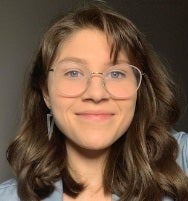
Elizabeth Drew, a third-year mechatronics engineering student, is one of 10 fellows in the inaugural class named by the Zenith Canada Pathways Foundation (ZCPF), a non-profit organization created to advance equity, diversity and inclusion in the space sector.
Fellows from universities across the country will work at a Canadian space organization, get paired with a senior industry mentor, receive professional development training and meet with other fellows throughout the year-long program.
Drew wanted to be an astronomer before attending a space camp in Houston when she was 11 and learning about the James Webb Space Telescope, which launched late last year with goals including observation of the first stars and finding potentially habitable planets.
“From there I was set,” she said of a presentation on the telescope. “Engineering for space robotics was the goal.”
As a fellow in the ZCPF program, Drew will work this summer on satellite components at Sinclair Interplanetary by Rocket Lab, a leading satellite hardware company based in Toronto.
Fellowship an 'opportunity for growth'
Drew, who grew up in Calgary, is ultimately aiming for a technical and strategic leadership role in the Canadian space industry, either with her own business or in positions with private companies or the Canadian Space Agency.
“This internship is much more than a job - it is an opportunity for growth and an affirmation that this is the path in life I am destined to take,” she said.
Drew feels up for the challenge after learning crucial soft skills through her co-op terms, as well as gaining insight into how entire systems must interact to succeed and how to tackle real-world problems.
Fellows were chosen based on their community involvement, leadership skills, technical capabilities and passion for contributing to the Canadian space sector.
CEE to host 2021 Co-op Student of the Year and Problem Lab Awards
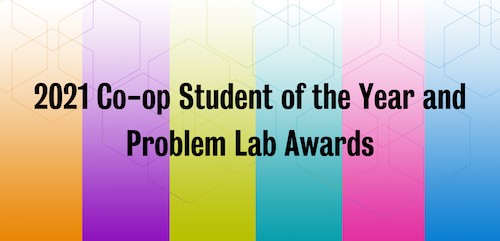
A message from Co-operative and Experiential Education (CEE).
March is Work-Integrated Learning (WIL) Month and what better way to celebrate than recognizing exceptional performances by our Waterloo co-op students.
Despite facing another year of challenges, Waterloo co-op students continued to adapt and innovate in 2021.
On March 21, Co-operative and Experiential Education (CEE) will announce the 2021 Co-op Students of the Year and Problem Lab winners as part of WIL Month.
Each year, the Co-op Student of the Year Awards are granted to one co-op student from each of Waterloo’s six faculties based on the impact they have made with their employers, work term evaluations, community involvement, academic achievement and their promotion of the co-operative education program.
The Problem Lab Awards are granted to co-op students who have found and analyzed a strategically important problem affecting their employer.
We welcome the campus community to join us on Monday, March 21 at 11:00 a.m. ET for this event. Please register to attend the virtual Co-op Student of the Year and Problem Lab Award ceremony.
Writing and Communication Centre seeks racialized student input in survey
A message from the Writing and Communication Centre (WCC).
In collaboration with the Graduate Student Association, the Writing and Communication Centre (WCC) is seeking your input on the development of social writing supports for BIPOC students and wants to hear from you. By completing a survey, you will help inform the design of the WCC’s programming.
This survey is intended only for individuals who identify as Black, Indigenous or a person of colour and are currently enrolled in a graduate studies program at the University of Waterloo. If you have any questions, contact Ileana Diaz at idiaz@uwaterloo.ca.
The survey can be found on the University of Waterloo's Qualtrics site.
Winter lectures address global social concerns
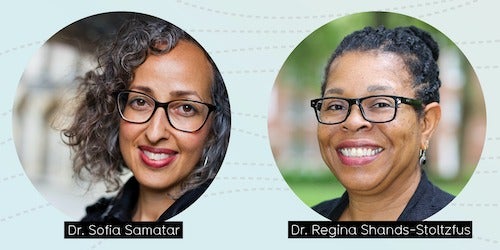
By Ashitha Mantrawadi. This article was originally published on the Conrad Grebel University College website.
Coming this March, Conrad Grebel University College is hosting two distinct winter lectures, offered by Professors Sofia Samatar and Regina Shands-Stoltzfus. The presentations are focused on addressing global social concerns and raising awareness about oppression.
“We are eagerly anticipating the 2022 Bechtel and Sawatsky lectures,” said Grebel’s Dean, Troy Osborne. “They will be excellent opportunities to learn from two remarkable scholars. Dr. Samatar’s and Dr. Shands Stoltzfus’s talks address the topical subjects of shelter, justice, and anti-oppression, and we look forward to learning more from them.”
Sofia Samatar, associate professor at James Madison University and an award-winning fantasy author, will deliver the Bechtel Lecture in Anabaptist-Mennonite Studies at Grebel. Samatar's forthcoming memoir, The White Mosque, shares what she learned about identity and border-crossing from the history of a Mennonite village in Central Asia. Samatar’s upcoming lecture, “On Dwelling: Shelters in Place and Time” explores the idea of what it means to shelter in place from an ethical point of view. She considers the questions, “What does shelter look like for those who are forced to leave their homes?” and “when prevented from staying in place, how can a person dwell?”
Professor Regina Shands Stoltzfus is this year's Rodney and Lorna Sawatsky Visiting Scholar. She is a published author and the director of Goshen College's Peace, Justice, and Conflict Studies program. Her lecture, “Resistance Strategies: Equipping Ourselves and Our Communities for Long Term Justice Work,” addresses the topic of maintaining a just world.
"The work of building a more just world includes acknowledging the world that is, and that was,” explained Shands Stoltzfus. “This knowledge can be overwhelming, especially for people with marginalized identities. This talk will reflect on strategies from past and current movements, as well as how my own teaching has changed."
Join the Grebel community in March to learn more about these thought-provoking lectures. Samatar’s public lecture “On Dwelling: Shelters in Place and Time,” will be hosted virtually on March 10 at 7:00 pm. Shands Stoltzfus’s public lecture “Resistance Strategies: Equipping Ourselves and Our Communities for Long Term Justice Work,” will be hosted virtually on March 24 at 7:30 pm. Both lectures are free to attend, but advance registration is required.
Wednesday's notes
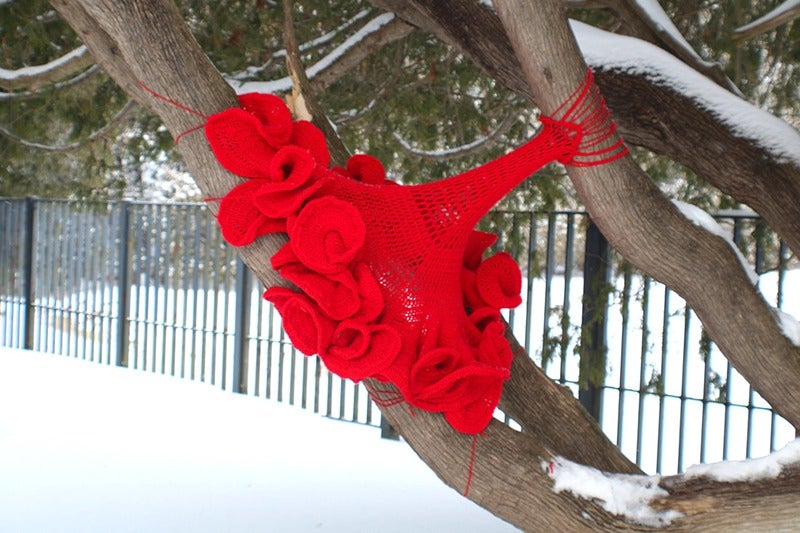
The University of Waterloo Art Gallery (UWAG) will be hosting an outdoor art installation on Thursday, March 10 from 9:00 a.m. to 5:00 p.m. Métis artist Tracey-Mae Chambers will install her work, #hopeandhealingcanada, on the greenspace in front of East Campus Hall on University of Waterloo campus.
"The goal of #hopeandhealingcanada is to broach the subject of decolonization," says a statement from the artist. "The installations are created with large premade crochet and knit pieces made with red yarn. These are created both inside and outside, and weather the elements quite successfully. The installations can be in place for as long as the venue would like. Once dismantled the work itself will be returned to me and it will be reworked and repurposed at another site somewhere in the country. The stories from each participating venue will culminate into a book and traveling exhibition."
"Many (but not all) of these public spaces serve to present a colonial viewpoint and primarily speak about the settlers who arrived and lived here, but not the Indigenous people that were displaced along the way. The decolonization of such places is a ponderous task and must be shouldered collectively. The discussion of reconciliation and decolonization is hard to start and harder still to maintain. Therefore, I am hoping to use my work to help bridge the gap between settlers and Indigenous, Métis, and Inuit people by creating art that is approachable and non-confrontational so we can start. As I am part Métis and European, I am conscious of the privilege my 'whiteness' affords me and bridging this gap is in fact a form of self-education and self-healing."
Tracey-Mae Chambers is a Métis artist and a member of the Métis Nation of Ontario. Her family is from, and some still reside, in the traditional Métis community in Sault Ste. Marie and Penetanguishene, Ontario. She is traveling across Canada and the United States creating site specific art installations at residential school historical sites, cultural centres, museums, art galleries and other public spaces.
Employers hosting Virtual Employer Information Sessions (VEIS) next week include TULLOCH. Make sure to register WaterlooWorks and check the calendar for any updates.
Link of the day
We're not worthy: checking in on Wayne's World's legacy, 30 years later
When and Where to get support
Students can visit the Student Success Office online for supports including academic development, international student resources, immigration consulting, leadership development, exchange and study abroad, and opportunities to get involved.
Instructors looking for targeted support for developing online components for blended learning courses, transitioning remote to fully online courses, revising current online courses, and more please visit Agile Development | Centre for Extended Learning | University of Waterloo (uwaterloo.ca).
Instructors can visit the Keep Learning website to get support on adapting their teaching and learning plans for an online environment.
Course templates are available within your course in LEARN to help you build and edit your content and assignment pages quickly.
The following workshops, webinars, and events are offered by the KL team (CTE, CEL, ITMS, LIB):
- Independent Remote Course Design Essentials, self-directed, continuous self-enrollment course in LEARN.
- Independent Blended Course Design (iBlend), self-directed, ongoing
- Copyright Overview for Waterloo Instructors and Staff - self-directed, continuous self-enrollment course in LEARN.
- Thirty Minute Thursdays - PebblePad - Offered March 10, 12:00 noon to 12:30 p.m.
Supports are available for employees returning to campus. Visit IST’s Hybrid Work and Technology guidelines and workplace protocols to assist with the transition.
The Writing and Communication Centre has virtual services and programs to help undergrads, grad students, postdocs and faculty members with academic writing.
- Meet with writing advisors in one-to-one appointments to brainstorm, draft, revise, and polish. No time for an appointment? Try email tutoring for undergrads.
- Beat isolation and make writing progress at weekly Virtual Writing Cafés for grad students and faculty or PJ-Friendly Writing Groups for Undergrads.
- Take an online workshop or apply to our popular Dissertation Boot Camp program.
- Faculty can request custom in-class workshops for their courses, or the WCC can facilitate any existing workshops for student groups.
- Course-integrated support available. Attention faculty and instructors: The application form for Writing and Communication Centre course-integrated support is now available online. We offer five unique support streams for your courses including synchronous and asynchronous workshops and monitored discussion boards.
Co-op students can get help finding a job and find supports to successfully work remotely, develop new skills, access wellness and career information, and contact a co-op or career advisor.
The Centre for Career Action (CCA) has virtual services and programs to support undergrads, grad students, postdocs, alumni and employees in figuring out what they value, what they’re good at, and how to access meaningful work, co-op, volunteer, or graduate/professional school opportunities. Questions about CCA's services? Live chat, call 519-888-4047, or stop by our front desk in the Tatham Centre between 8:30 a.m. and 4:30 p.m. EST, Monday to Friday.
Drop-in to Warrior Virtual Study Halls on Wednesdays from 5:30 p.m. to 7:00 p.m. Come together in this virtual space to set goals and work independently or in groups each week.
Renison's English Language Institute continues to offer virtual events and workshops to help students practice their English language skills.
If you feel overwhelmed or anxious and need to talk to somebody, please contact the University’s Campus Wellness services, either Health Services or Counselling Services. You can also contact the University's Centre for Mental Health Research and Treatment. Good2Talk is a post-secondary student helpline available to all students.
The Library is open with expanded hours for access to book stacks, drop-in individual study space, bookable group study rooms, drop-in access to computers and printers, book pick-up services and IST Help Desk support. Librarian consultations, Special Collections & Archives and the Geospatial Centre are available by appointment. Full details on current services and hours are available on the Library’s COVID-19 Update webpage.
The Faculty Association of the University of Waterloo (FAUW) continues to advocate for its members. Check out the FAUW blog for more information.
The University of Waterloo Staff Association (UWSA) continues to advocate for its members. Check out the UWSA blog for more information.
The Sexual Violence Prevention and Response Office (SVPRO) supports all members of the University of Waterloo campus community who have experienced, or been impacted, by sexual violence. This includes all students, staff, faculty and visitors on the main campus, the satellite campuses, and at the affiliated and federated Waterloo Institutes and Colleges. For support, email: svpro@uwaterloo.ca or visit the SVPRO website.
The Office of Indigenous Relations is a central hub that provides guidance, support, and resources to all Indigenous and non-Indigenous campus community members and oversees the University's Indigenization strategy.
The Waterloo Indigenous Student Centre, based at St. Paul’s University College, provides support and resources for Indigenous students, and educational outreach programs for the broader community, including lectures, and events.
WUSA supports for students:
Peer support - MATES, Glow Centre, RAISE, Women’s Centre - Visit https://wusa.ca/peersupport to book an appointment either in person or online for the Fall term.
Food Support Service food hampers are currently available from the Turnkey Desk 24/7 in the Student Life Centre. Drop off locations are also open again in SLC, DC, DP, SCH and all residences.
Co-op Connection all available online. Check https://wusa.ca for more details.
Centre for Academic Policy Support - CAPS is here to assist Waterloo undergraduates throughout their experience in navigating academic policy in the instances of filing petitions, grievances and appeals. Please contact them at caps@wusa.ca. More information is available.
WUSA Student Legal Protection Program- Seeking legal counsel can be intimidating, especially if it’s your first time facing a legal issue. The legal assistance helpline provides quick access to legal advice in any area of law, including criminal. Just call 1-833-202-4571.
Empower Me is a confidential mental health and wellness service that connects students with qualified counsellors 24/7. They can be reached at 1-833-628-5589.
GSA-UW supports for graduate students:
The Graduate Student Association (GSA-UW) supports students’ academic and social experience and promotes their well-being.
Advising and Support - The GSA advises graduate students experiencing challenges and can help with navigating university policies & filing a grievance, appeal, or petition.
Mental Health covered by the Health Plan - The GSA Health Plan now has an 80 per cent coverage rate (up to $800/year) for Mental Health Practitioners. Your plan includes coverage for psychologists, registered social workers, psychotherapists, and clinical counselors.
Dental Care - The GSA Dental Plan covers 60 to 70 per cent of your dental costs and by visiting dental professionals who are members of the Studentcare Networks, you can receive an additional 20 to 30 per cent coverage.
Student Legal Protection Program - Your GSA fees give you access to unlimited legal advice, accessible via a toll-free helpline: +1-833-202-4571. This advice covers topics including housing disputes, employment disputes, and disputes with an academic institution.
The Graduate House: Open Monday to Friday 11:30 a.m. to 6:00 p.m. We’re open to all students, faculty, staff, and community members. The Graduate House is a community space run by the GSA-UW. Vaccination Records and Government ID continue to be required for all dine-in guests. Graduate students who paid their fees can get discounts and free coffee.
When and Where (but mostly when)
Warriors vs. Laurier Blood Donation Battle. Join our “Waterloo Warriors” team on the Blood.ca website or app. #ItsInYouToGive
NEW - Half Price Fitness Memberships and Rock Climbing Memberships. Only $25 for the remainder of the term. Purchase your membership now.
Health of Canadians in a Changing Climate, Wednesday, March 9, 1:30 p.m. to 3:00 p.m.
Fire and Feathers, Music for Harp and Violin, Wednesday, March 9, 12:30 p.m., online premiere.
Health of Canadians in a Changing Climate, Wednesday, March 9, 1:30 p.m.
NEW - Warriors Women’s Volleyball OUA Playoffs vs. Windsor, Wednesday, March 9, 6:00 p.m. (Totzke Court, PAC). Purchase your tickets today.
Bechtel Lecture featuring Sofia Samatar, On Dwelling: Shelters in Place and Time, Thursday, March 10, 7:00 pm
Day of Action for a Just Transition, Saturday, March 12, 2:00 p.m., in the Huron Natural Area.
Blend 2022 – Where Business Meets Design, presented by The Stratford School of Interaction Design and Business and Manulife, exploring the theme "Design for All." Saturday, March 12, 12:00 p.m. to Sunday, March 13 at 6:00 p.m.
Getting Ready to Facilitate Online Courses: TA Training – Spring 2022, March 21 to April 15 (online certificate course). Register on GoSignMeUp.
Positions available
On this week's list from the human resources department, viewable on the UWaterloo Talent Acquisition System (iCIMS):
- Job ID# 2022-8015 - Information Technology Specialist - 2951 - CSCF, USG 9 - 13
- Job ID# 2022-8029 - Analyst - Co-operative and Experiential Education Business Services, USG 8 - 10
- Job ID# 2022-8022 - Expense Associate - Finance, USG 6
- Job ID# 2022-7853 - Internal Communications Officer - Dean of Engineering - Advancement Unit, USG 10
- Job ID# 2022-7936 - Information Systems Specialist - Full Stack Data Developer - Mechanical and Mechatronics Engineering, USG 9
- Job ID# 2022-8036 - Building Serviceperson I - Roofing Mechanic - Plant Operations, CUPE
- Job ID# 2022-8038 - Advancement Manager - School of Architecture, USG 9 - 10
- Job ID# 2022-8078 - Senior Manager, Funding Agencies and Non-profit Sponsors. -Office of Research, USG 12
- Job ID# 2022-8004 - Supervisor - Food Services, USG 7
Secondments/Internal temporary opportunities
- Job ID# 2022-8045 - Research Manager, TRANSFORM - Geography and Environmental Management , USG 6
- Job ID# 2022-8065 - Graduate Studies Marketing and Recruitment Specialist - Dean of Environment, USG 9
- Job ID# 2022-8027 - Advisor, Housing Services - Campus Housing, USG 5
- Job ID# 2022-8059 - Coordinator, Occupancy and Data - Campus Housing, USG 7
- Job ID# 2022-8006 - Career Advisor - CEE - Centre for Career Action, USG 8 – 10
- Job ID# 2022-8020 - Career Advisor - CEE - Centre for Career Action, USG 8 – 10
- Job ID# 2022-8023 - Associate Director, Advancement - Optometry and Vision Science, USG 12 – 13
- Job ID# 2022-8026 – Analyst - CEE Business Services, USG 8 – 10
- Job ID# 2022-8041 - Account Coordinator - CEE - Co-operative Education, USG 5 – 6
- Job ID# 2021-7227 - Administrative Assistant – WatSPEED, USG 6
- Job ID# 2022-7998 - Precision/CNC Machinist - Science Technical Services 3425, USG 8
- Job ID# 2022-8044 - Senior Development Officer - Office of Advancement, USG 10 - 11
Affiliated and Federated Institutions of Waterloo opportunities